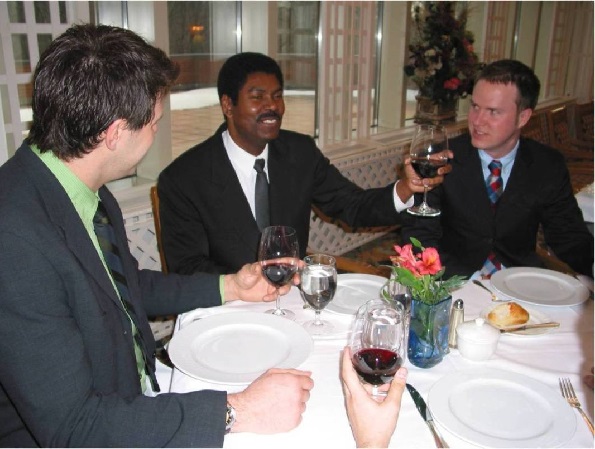Sharon Schweitzer, an international etiquette expert, author, and the founder of Protocol & Etiquette Worldwide, offers this simple tipping checklist of which service providers you need to tip this holiday season and how much:
Business (check corporate policy):
- Clients: Business gift baskets of chocolate, edible fruit, nuts, cheese, wine, cookies, petite fours; golf balls & non-logo gifts.
- CEO/Boss: Group gift to their favorite charity or non-profit foundation
- Assistant: Bonus or gift based on relationship length
- Colleagues: gift they will like for sports, hobby, or dining, gift card.
- Office Gift Exchange: don’t go rogue, follow the spending guidelines.

Education & Schools (follow policy):
- Professor: greeting card, no gift
- Teacher: Consider a group gift with parents pooled funds
- Assistant /Aide: $25 – $50 gift certificate
- Multiple Teachers: small gift, candle, baked goods, gift certificate.
- Principle: Holiday card & baked goods
- School Secretary: café gift card, small gift or gift certificate
- School Nurse: café gift card, small gift or gift certificate
Home or Building Personnel:
- Live-in help (cook or butler): between a week-month’s pay, plus a gift
- Housekeeper: if they come once a week: equivalent of a day’s pay, or $50. If they come daily: equivalent of a week’s pay, and possibly a gift
- Gardener: equivalent of a week’s service
- Landscaping crew: equivalent of a week’s service, divided among the crew
- Pool cleaning crew: equivalent of one session, divided among the crew.
- Garage attendant: between $15 and $40 or give a small gift
- Garbage/recycling: if city permits, $10-$30 each for extra holiday effort
- Doorman: between $50 – $100 each, or gift, depending on extra duties
- Elevator Operator and Handyman: between $20 – $50 each
- Newspaper delivery: between $10 – $35, or give a small gift
Healthcare providers:
- Private health care nurse: week’s pay or a gift of similar value
- Home health employee: follow policy / generous gift basket of holiday treats
- Nursing home staff: follow policy / gift basket of holiday treats for all
Personal grooming:
- Hairstylist, manicure, pedicure, specialist: equivalent of a visit
- Barber: haircut & shave equivalent or give a gift
- Massage therapist/personal trainer: session equivalent or give a gift
Pet care:
- Groomer: equivalent of one session or give a gift
- Walker: week’s pay equivalent or “1-2 visits” per com
- Sitter: a week’s pay and a paw print note from your pet
Package & Mail Delivery:
The United States Postal Service provides the public with a tipping and gift receiving policy on their website, FedEx and UPS do not. The information provided for FedEx and UPS is from customer service representatives who preferred not to give their names.
United States/Canada Postal Service:
- Employees may accept baked goods (homemade/store bought) items to share with the branch office. Customers may give edible arrangements, gift cards for merchandise or services valued up to $20 per interaction. Gifts cannot exceed $50 per calendar year.
- Gifting cash, VISA, MasterCard, or gift cards that may be used as cash are prohibited per USPS Employee Tipping and Gift Receiving Policy and also prohibited for Canada Post employees.
FedEx:
- Company policies discourage gift cash or gift cards. The driver will politely decline the holiday gratuity. If the customer is insistent, the driver may ultimately accept the gift.
UPS
- UPS does not have a limit; tipping is left to customer’s discretion.
Avoid giving holiday tips to people on this list; send holiday e-cards instead:
Accountant/CPA
Attorney
Auditor
Banker
Bookkeeper
Dentist
Doctor
Executive Coach
Members, Board of Directors or Trustees
Seamstress/ Tailor
Veterinarian









